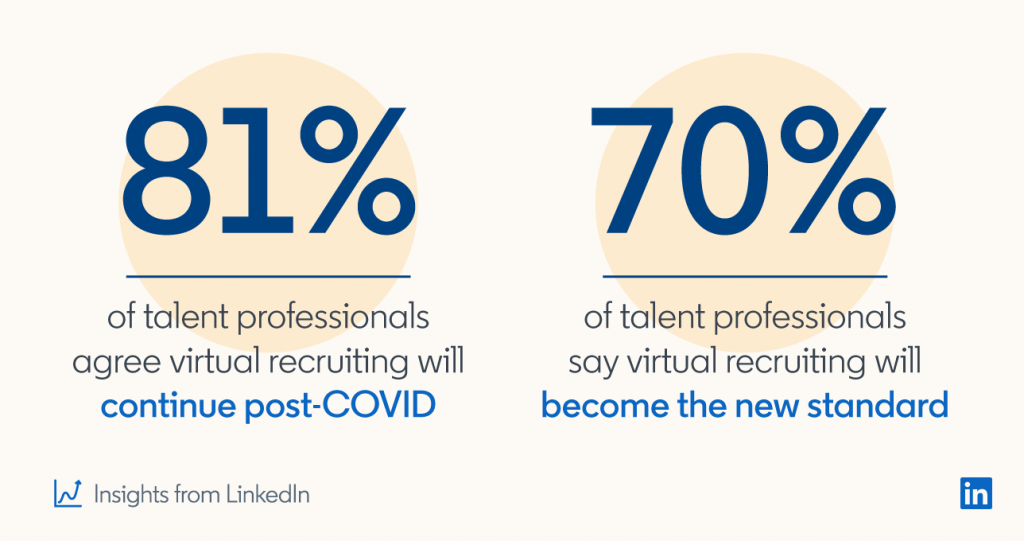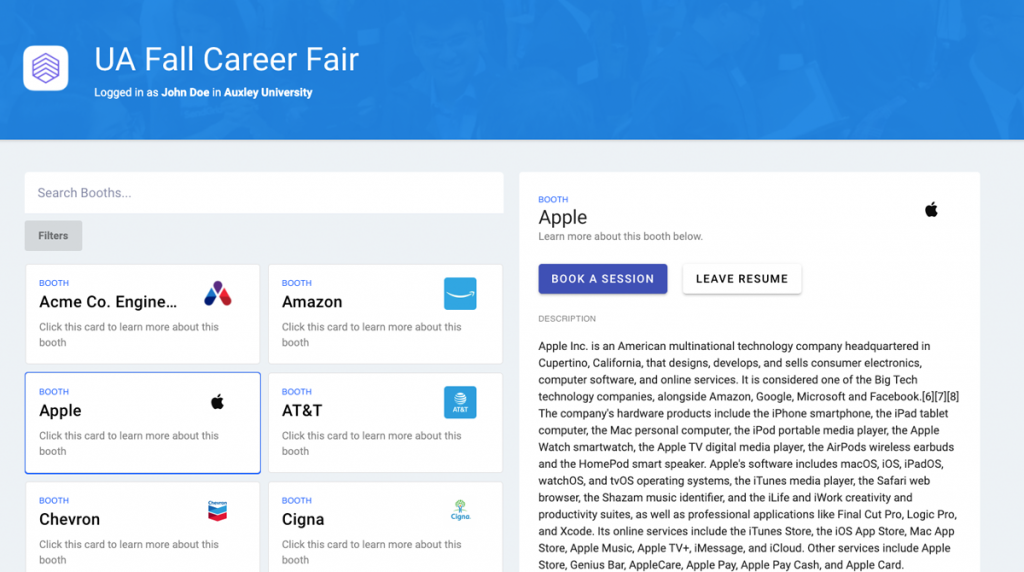
The results are in: 70% of recruiting professionals believe that virtual recruiting is here to stay, even after the global COVID-19 pandemic has been eradicated. In the post below, we list reasons why recruiters will continue to use virtual recruiting and virtual career fairs, in a post-pandemic world.
Larger Reach
Moving your career fair online has the obvious benefit of increasing the pool of job applicants that can possibly attend your fair. Candidates that previously would be unable to attend due to geographic restrictions will now be able to participate.
In addition, job applicants that are physically nearby will no longer have to commute in for a chance to have a 1-on-1 conversation with one of your recruiters. This saves them substantial time and makes your fair that much more of a positive experience for them.
Quick & Cost-Efficient
Setting up an in-person career fair is expensive and can take weeks to months of planning. From booking a venue to training personnel and managing transportation logistics, the number of people required to make sure an in-person career fair runs smoothly is much higher than a virtual career fair.
Not only are virtual career fairs cheaper and quicker to set up, but they also require less manpower to run during the event itself. For example, personnel used to track attendance and check attendees in are no longer required because check-in and attendance tracking are built-in features of most virtual career fairs.
Branding
Due to the nature of virtual career fairs, they are often a much more brand-able experience than physical career fairs. Most vendors will allow recruiters to choose fonts, logos, and the thematic colors of the virtual fair itself.

Similarly, rather than having to hand out printed brochures, employers can embed videos & images for attendees to view, right within the fair itself.
Measurable ROI & Granular Data
Gathering data and measuring ROI of a physical career fair is challenging. At best, you can track which candidates attended your fair and possibly which recruiters the participant spoke with.
With virtual career fairs, you can track exponentially more data. From the number of interactions each participant was involved with to the average length of a conversation, everything that goes on a virtual career fair can be tracked (assuming your country’s data privacy laws permit it).
Conclusion
While a virtual career fair cannot replace the face-to-face interactions of a physical career fair, a virtual career fair provides many benefits over a traditional physical career fair such as increased reach, efficiency, and branding. Due to these reasons, virtual career fairs are most likely here to stay, even after social distancing procedures go away.

1 comment